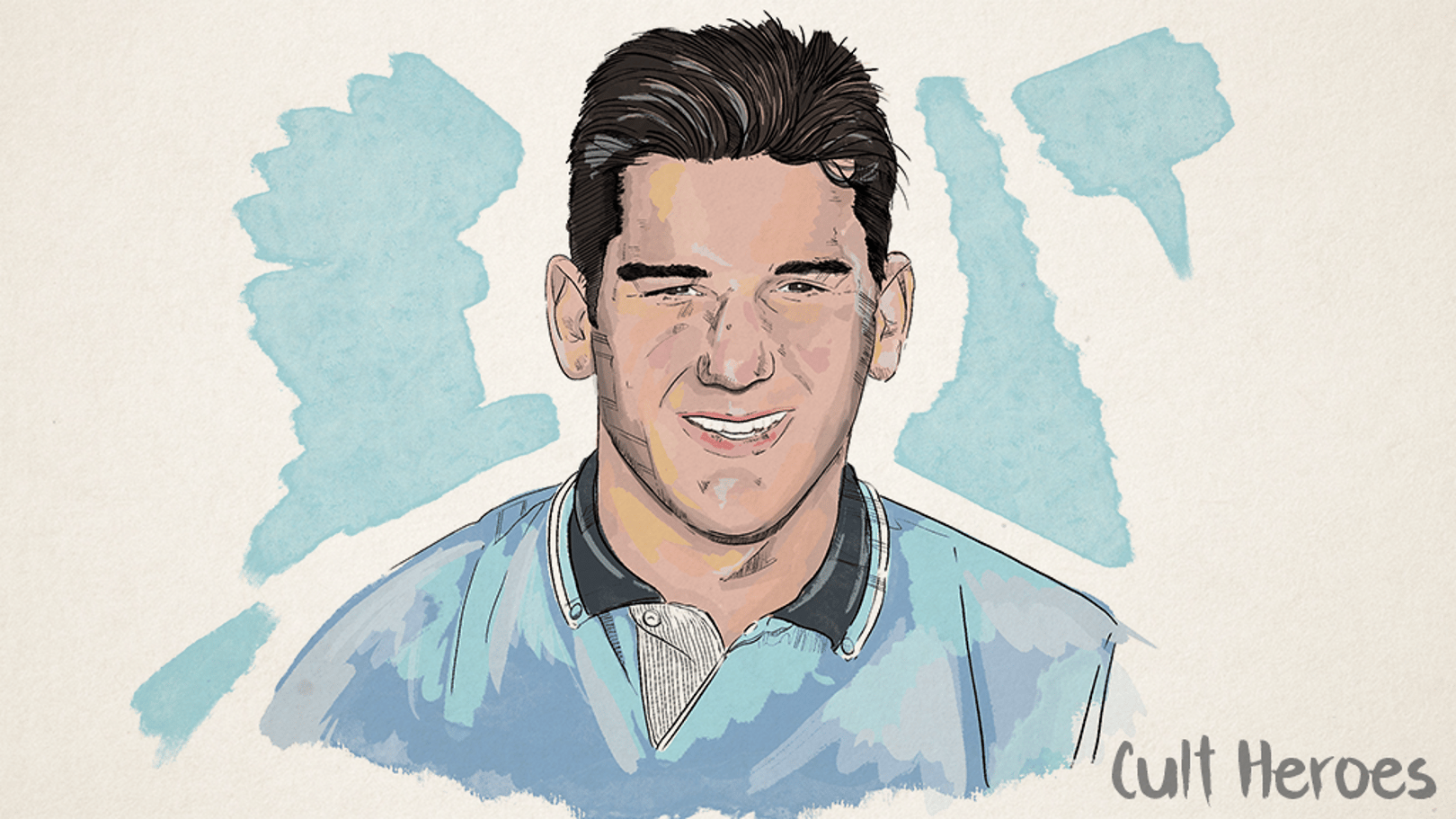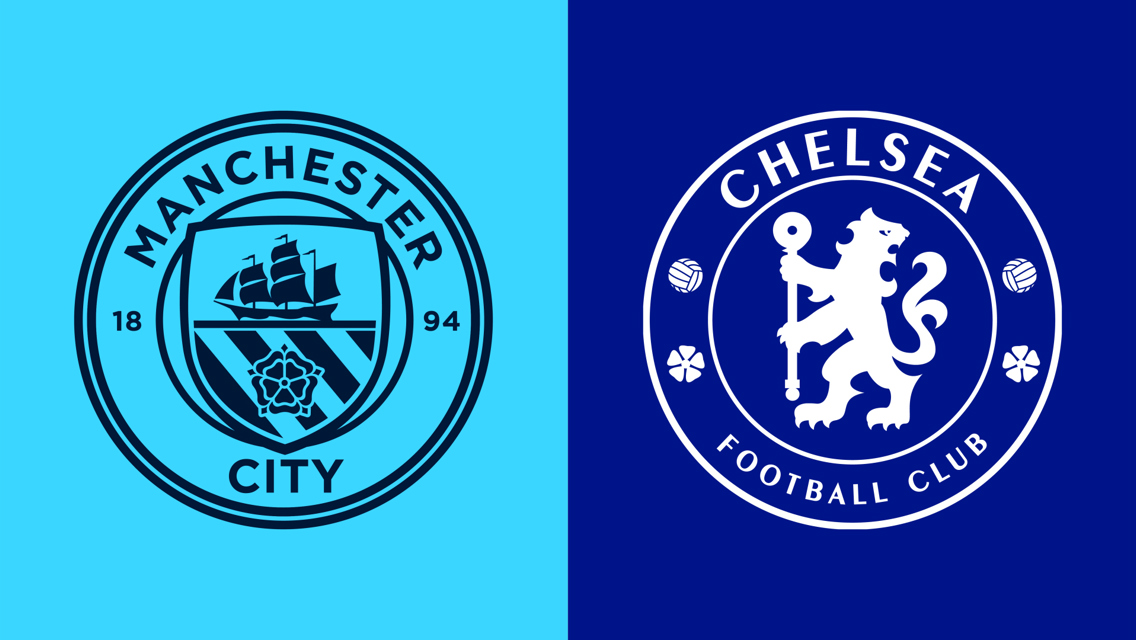Manchester-born White progressed from the 1986 FA Youth Cup winning team that also spawned the likes of Andy Hinchcliffe, Ian Brightwell, Steve Redmond, Paul Lake and Paul Moulden.
He made his league debut aged only 18, coming on as a sub in the 1-0 defeat at Luton.
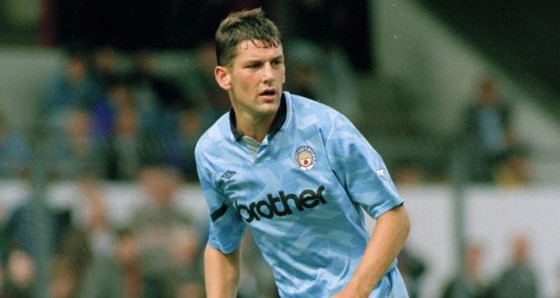
He then played sporadically for the first team that season finding the net only once in 19 starts.
The following season, Mel Machin took over from Jimmy Frizzell and White became a permanent fixture in the City team, playing in every game during the 1987/88 campaign and managing 13 goals.
White wrote his name into the history books when he scored one of three hat-tricks in the incredible 10-1 demolition of Huddersfield Town, making a couple more in a devastating display.
DAVID SILVA: Order your copy of ‘El Mago – A Decade of Magic’ now.
Who could forget him racing through the Huddersfield defence in a one-on-one with the Terriers’ keeper, rounding him and sliding the ball home for No.10?
It was his first really exhilarating performance for City having suffered with his nerves during his first season and, having managed just two goals in his first 35 appearances, it showed he was capable of destroying teams with his electric pace and finishing – so long as his confidence was intact.
He missed only one game during the 1988/89 season and it was his perfect cross at Bradford City on the final day that Trevor Morley scored from to give City the point we needed for promotion.
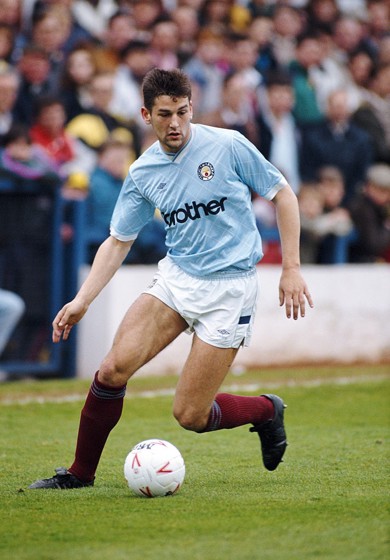
He earned the last of his six England under-21 caps against Poland later that year, too and was by now a firm favourite on the Kippax.
For the second year running, White missed only one game as City consolidated their return to Division One and he was superb during the 5-1 hammering of Manchester United, tormenting the Reds’ defence all afternoon as well as laying on Andy Hinchcliffe’s unforgettable header for the fifth of the afternoon.
Machin was sacked in November 1988 and Howard Kendall took over and continued with White now leading the line rather playing in his original role of winger.
When Niall Quinn joined the club, White had the strike partner he had craved for and their lethal partnership became the bedrock of City’s impressive fifth place finish – the highest final placing for 13 years and one ahead of Manchester United.
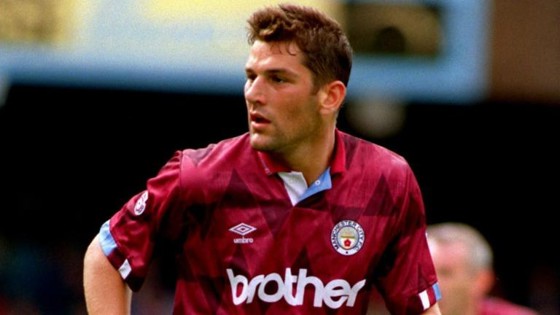
White and Quinn scored 36 league goals between them and ended the 1990/91 campaign under yet another new manager in Peter Reid.
Arguably, White’s greatest ever performance for City came towards the end of that season when he scored four goals away to Aston Villa in a 5-1 victory.
White was unstoppable during the Villa win and showed skill, power and speed in an unforgettable one-man destruction of a Villa side who were no pushover.
White was at the very peak of his game and was rewarded with a couple of England ‘B’ caps shortly after.
City finished fifth again the following year and White enjoyed his best-ever goal tally of 18 with Quinn also notching a dozen.
He was rewarded with a full England cap that summer but was given only the one chance to impress during a defeat to Spain.
There was perhaps one defining moment during his England debut when he was put through on goal but fluffed his shot – and seemingly his chances of more caps, too.
It was symptomatic of White’s game in that he could frustrate and delight in equal measure. On his day he was dynamite, but when his confidence was at a low ebb, his finishing could be found wanting.
For a time, though, defences simply couldn’t handle the deadly Quinn-White partnership.
With Quinn’s deft flicks and headers and White’s lightning pace and success ratio in front of goal, the ‘jet-heeled’ White, as he was often called, scored a further 16 goals as the City finished ninth in the inaugural Premier League season of 1992/93.
However, when Reid was sacked after four games of 93/94 season, it signalled beginning of the end for David White as a Manchester City player.
New boss Brian Horton gave him 13 starts before swapping him for Leeds United’s David Rocastle in a deal valued at £2m.
That left Ian Brightwell was the sole survivor of the 1986 FA Youth Cup winning team.
White, who scored 96 goals in his time with City eventually moved on to Sheffield United, but his happiest and most fruitful days were without doubt spent playing for City, his hometown club for whom he was, at times, electrifying.
An explosive talent.

